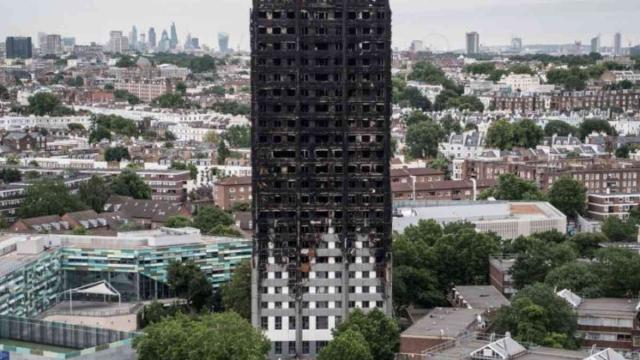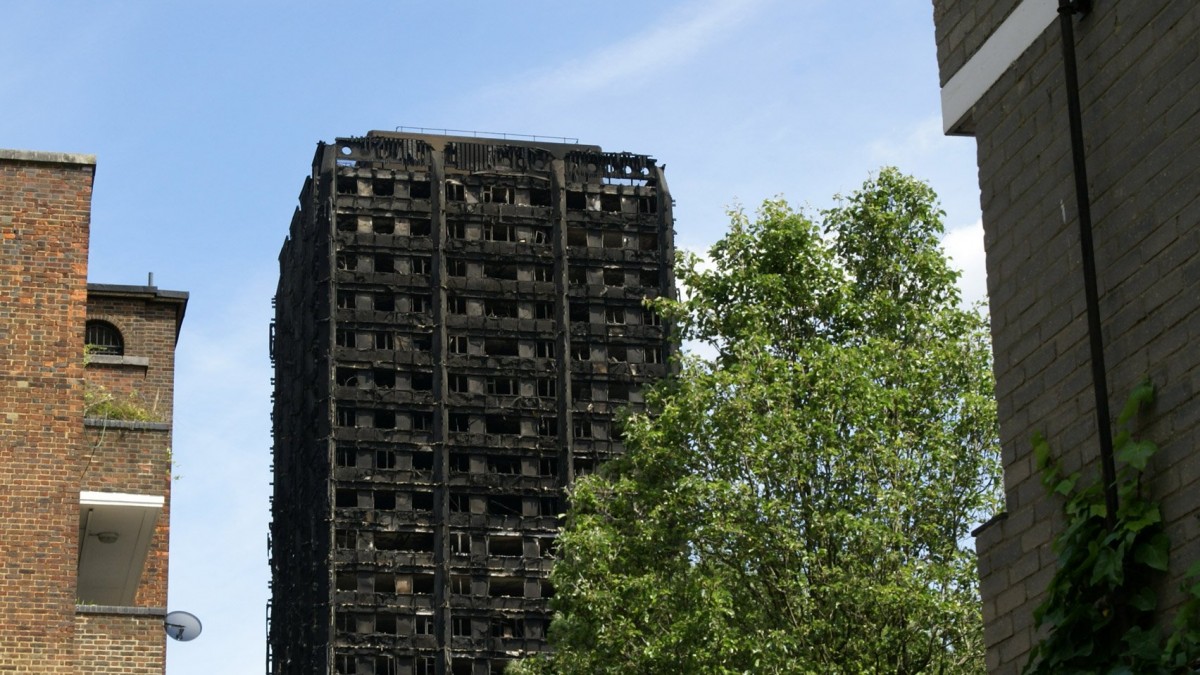
The British establishment is ignoring calls for an open and inclusive investigation into the Grenfell Tower fire, one of London’s worst disasters since World War II. An investigation could demonstrate how government, as well as local authority policy and for-profit contractors, turned 120 homes into a 24-floor death trap – and expose a cover-up of the tragedy in which authorities may ultimately be held responsible.
Occupy.com spoke to the Justice for Grenfell campaign to learn more about the community’s fight for truth and accountability.
“The inquiry must identify each and every individual and organization who bear responsibility and accountability for this tragedy and the mishandling of the aftermath,” said Yvette Williams, co-coordinator of the Justice for Grenfell campaign, which emerged in the immediate aftermath of the fire.
The campaign asserts that the inquiry needs to include not only survivors and bereaved families, but also the wider community – and supported with legal aid. It needs to have a clear timetable that allows traumatized individuals to deal with matters as swiftly as possible. The community also demands that the scope of the inquiry be determined by its participants, and that a suitable judge and team be chosen to analyze all systemic issues related to the fire.
Survivors and residents have already expressed many practical concerns, which the campaign is supporting. One of them is that employers should not discipline those suffering trauma due to the fire. Also, any refugees without asylum status should be given amnesty, they say, particularly since they lost any official asylum claims in the fire.
Williams adds, “We are not the only local community that the authorities are treating with contempt. Grenfell should change public policy and reverse the attack on regulation that has been brought in over a number of years.”
The State's Failure to Listen
When I spoke to Williams, the official inquiry into the Grenfell disaster had just been appointed a chairman, Sir Martin Moore-Bick. During our interview, the judge was meeting survivors in a nearby church. This made Williams uneasy.
“I’m worried about survivors meeting with him today. They are heavily traumatized and had no [legal] advice, and they could get bulldozed by the state. The community needs to find unity, as the state will try to break us down. I worked for it for 14 years, and I know they can be crooked,” said Williams, who has campaigned against racism in the past.
Later, Moore-Bick said the scope of his inquiry would be narrower than survivors expected. In response, Justice for Grenfell said the group was “extremely disappointed” and that survivors and locals may boycott such a narrow investigation.
Kensington’s Tale of Two Cities
Visiting Grenfell and the surrounding area, the extreme inequality is striking. On one hand you have people living in council estates – known in the U.S. as projects – whereas at the other end of the borough people own country estates.
Williams told me that the Conservative council has long held the poorer areas in contempt. She explained that the local politicians rely on votes from the rich, so they ignore the social conditions for the poorest. Crucially, she said people need to look at how politicians give contracts through their old boys' networks.
The manner in which the local community has been ignored since the fire echoes the way residents were sidelined when they initially raised building safety concerns. Since the disaster, there has been chaotic coordination between the authorities and victims. Among other revelations, survivors are still being charged rent on their burnt out homes. And while there have been millions of pounds worth of donations, these have not reached residents.
Williams told me that the lack of accountability started on the day of the disaster, with the council failing to properly fill in emergency procedures forms. This made it so that emergency services didn't know who to contact to coordinate relief. “There was no leadership or authority. It was just the people: we were running the people’s republic of Ladbroke Grove,” Williams said.
People unofficially subletting in the tower have also been denied emergency relief, she added.
Death Toll Cover-up, and a Bonfire of Regulations?
Lack of records of everyone living in the building has also made it more difficult to identify those who lost their lives in the disaster. But many also suggest the official death toll, now at 80, has been downplayed to dampen public outcry. A firefighter I spoke to, who wished to remain anonymous, was not alone suggesting the real figure is closer to 200.
Williams asserted, “There needs to be honesty. We think they know more than they are saying and we need to get to the bottom of why that is. There is a lot of thick red tape to get through [for the victims to get compensation].”
This seems to be one of the overarching themes of Conservative-led Britain: there are weak regulations to protect human life from corporations or the state, but extensive bureaucracy entangling people as they try to access state support.
In 2015, then-Prime Minister David Cameron declared a “bonfire of regulations,” adding: “This government has already stopped needless health and safety inspections.”
Since the Grenfell fire, many local authorities have been examining the safety of their tower blocks. The result: all 149 high-rises examined have failed safety tests.
The government response reveals a laissez-faire approach, as legislators have urged – but not compelled – landlords to test their buildings’ safety.
Learning From the Past
Britain also needs to learn from the failures of previous inquiries, where it has taken years, if not decades, to uncover the truth. One example is the Hillsborough tragedy, where 94 football supporters were crushed to death at a game in 1989. It took until last year to rule that the deaths were unlawful and due to failings by the police. Only in the last week have criminal charges been brought against the offending officers.
Williams also pointed to the inquiry into the death of Stephen Lawrence, who was murdered in 1993 by a gang of racists. It took until the end of the decade for an inquiry to recognize the institutional racism that prevented the police from dealing with the murder. Some of the evidence has been sealed from the public for 99 years. “Every recommendation that came out of the Stephen Lawrence case has been watered down,” Williams said.
Many feel that in fighting for justice against a government that is already perceived as covering up the tragedy, perhaps the strongest chance of a swift, inclusive and extensive inquiry comes from the Labour Party. Labour leadership has sent a strong message calling for justice for Grenfell: from Jeremy Corbyn, who wrote to PM Theresa May asking for the inquiry to be broadened, and from Labour Shadow Chancellor John McDonnell, who went further saying the victims “were murdered by political decisions.”
3 WAYS TO SHOW YOUR SUPPORT
- Log in to post comments












